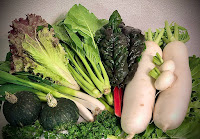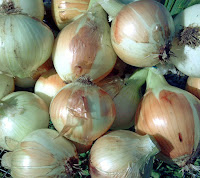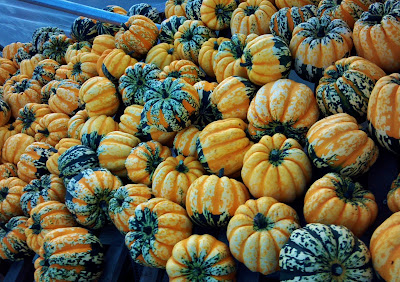Organic Farming
Organic Sustainable Farming and Permaculture

Growing your own food is fun! I didn't have a green thumb nor any knowledge/experience of growing food at first, not even simple gardening. Once I started growing food, however, it's become part of my life....soil, nature and food....and living. We must eat to live, not live to eat. Growing food is a great way to connect with mother earth, and come to know where food actually comes from....food chain. And, gardening/farming is not only you get to eat what you grow, fresh and delicious, but also it's about land and mother nature to show you how we are ecologically connected to the planet and mother earth, synchronizing with environment and seasonal changes.
For my news articles:
http://johnshiking.blogspot.com/p/articles.html
For my news articles:
http://johnshiking.blogspot.com/p/articles.html
Organic Gardening: Grow Your Food
My organic garden - 2021 Season/Part 2
My organic garden - 2021 Season/Part 3
Organic farming・Permaculture videos
More Videos on Organic farming
Videos posted here are to illustrate how we farm and grow organic vegetables, herbs and flowers, and also to share my experiences, knowledge and some of the techniques - organic farming I utilized, applying permaculture/natural farming principles in order to achieve sustainability.
Organic Farming and Community Supported Agriculture (CSA)
Video by Lifeismat
How to harvest Rhubarb
Pruning Tomato Plants
Video by Lifeisamt
How They Grow:
Sun Gold Cherry Tomato and Sweet Corn
(Time Lapse)
Video by Lifeisamt
Zucchini can grow more than an inch a day!
Zucchini can grow more than an inch a day!
Video by Lifeisamt
_____________________________________________________________________________
Permaculture
"Permaculture is a system of agricultural and social design principles centered around simulating or directly utilizing the patterns and features observed in natural ecosystems. The term permaculture was developed and coined by David Holmgren, then a graduate student, and his professor, Bill Mollison, in 1978. The word permaculture originally referred to "permanent agriculture",but was expanded to stand also for "permanent culture", as it was
understood that social aspects were integral to a truly sustainable
system as inspired by Masanobu Fukuoka’s natural farming philosophy.
It has many branches that include, but are not limited to, ecological design, ecological engineering, environmental design, and construction. Permaculture also includes integrated water resources management that develops sustainable architecture, and regenerative and self-maintained habitat and agricultural systems modelled from natural ecosystems.
Mollison has said: "Permaculture is a philosophy of working with,
rather than against nature; of protracted and thoughtful observation
rather than protracted and thoughtless labour; and of looking at plants
and animals in all their functions, rather than treating any area as a single product system."
The 12 principles of permaculture most commonly referred to are first described by David Holmgren in his book Permaculture: Principles and Pathways Beyond Sustainability
(2002). They include: Observe and Interact, Catch and Store Energy,
Obtain a Yield, Apply Self Regulation and Accept Feedback, Use and Value
Renewable Resources and Services, Produce No Waste, Design From
Patterns to Details, Integrate Rather Than Segregate, Use Small and Slow
Solutions, Use and Value Diversity, Use Edges and Value the Marginal,
and Creatively Use and Respond to Change."
"One Straw Revolution" (Japanese with English Subtitles)
"One Straw Revolution" (English)
"Masanobu Fukuoka (Japanese: 福岡 正信, 2 February 1913 – 16 August 2008) was a Japanese farmer and philosopher celebrated for his natural farming and re-vegetation of desertified lands.
He was a proponent of no-till, no-herbicide grain cultivation farming methods traditional to many indigenous cultures, from which he created a particular method of farming, commonly referred to as "natural farming" or "do-nothing farming".
Fukuoka was the author of several Japanese books, scientific
papers and other publications, and was featured in television
documentaries and interviews from the 1970s onwards.
His influences went beyond farming to inspire individuals within the
natural food and lifestyle movements. He was an outspoken advocate of
the value of observing nature's principles."
"Natural farming is an ecological farming approach established by Masanobu Fukuoka (1913–2008), a Japanese farmer and philosopher, introduced in his 1975 book The One-Straw Revolution. Fukuoka described his way of farming as 自然農法 (shizen nōhō) in Japanese.
It is also referred to as "the Fukuoka Method", "the natural way of
farming" or "do-nothing farming". The title refers not to lack of
effort, but to the avoidance of manufactured inputs and equipment.
Natural farming is related to fertility farming, organic farming, sustainable agriculture, agroecology, agroforestry, ecoagriculture and permaculture, but should be distinguished from biodynamic agriculture.
The system works along with the natural biodiversity of each farmed area, encouraging the complexity of living organisms—both plant and animal—that shape each particular ecosystem to thrive along with food plants. Fukuoka saw farming both as a means of producing food and as an aesthetic or spiritual approach to life, the ultimate goal of which was, "the cultivation and perfection of human beings". He suggested that farmers could benefit from closely observing local conditions. Natural farming is a closed system, one that demands no human-supplied inputs and mimics nature.
Fukuoka's ideas radically challenged conventions that are core to modern agro-industries; instead of promoting importation of nutrients and chemicals, he suggested an approach that takes advantage of the local environment. Although natural farming is considered a subset of organic farming, it differs greatly from conventional organic farming, which Fukuoka considered to be another modern technique that disturbs nature.
The system works along with the natural biodiversity of each farmed area, encouraging the complexity of living organisms—both plant and animal—that shape each particular ecosystem to thrive along with food plants. Fukuoka saw farming both as a means of producing food and as an aesthetic or spiritual approach to life, the ultimate goal of which was, "the cultivation and perfection of human beings". He suggested that farmers could benefit from closely observing local conditions. Natural farming is a closed system, one that demands no human-supplied inputs and mimics nature.
Fukuoka's ideas radically challenged conventions that are core to modern agro-industries; instead of promoting importation of nutrients and chemicals, he suggested an approach that takes advantage of the local environment. Although natural farming is considered a subset of organic farming, it differs greatly from conventional organic farming, which Fukuoka considered to be another modern technique that disturbs nature.
Fukuoka claimed that his approach prevents water pollution, biodiversity loss and soil erosion, while providing ample amounts of food."
Interview with Masanobu Fukuoka (Japanese)
"Convenience is Inconvenience"
Interview with Masanobu Fukuoka in 2006 (Japanese)
"60 years of Natural Farming"
"No till farming" (Japanese)
by Masanobu Fukuoka
The One-Straw Revolution is a best-selling book written by Masanobu Fukuoka, who developed and practiced "natural farming"(自然農法). The book has been translated in many languages
and lead Mr. Fukuoka to become a leader of the worldwide sustainable
agriculture movement. He continued farming until his
death in 2008, at the age of 95.
For more about the book, Mr. Fukuoka and natural farming, visit The One Straw Revolution that is dedicated by Larry Korn, who was a student of Masanobu Fukuoka and helped translate and edit the English version of The One-Straw Revolution. The following information is available on the site:
________________________________________________________________
Biodynamic agriculture
(From Wikipedia)
"Biodynamic agriculture is a form of alternative agriculture very similar to organic farming, but it includes various esoteric concepts drawn from the ideas of Rudolf Steiner (1861–1925). Initially developed in 1924, it was the first of the organic agriculture movements. It treats soil fertility, plant growth, and livestock care as ecologically interrelated tasks, emphasizing spiritual and mystical perspectives.
Biodynamics has much in common with other organic approaches – it emphasizes the use of manures and composts
and excludes the use of artificial chemicals on soil and plants.
Methods unique to the biodynamic approach include its treatment of
animals, crops, and soil as a single system, an emphasis from its
beginnings on local production and distribution systems, its use of
traditional and development of new local breeds and varieties. Some
methods use an astrological sowing and planting calendar.
Biodynamic agriculture uses various herbal and mineral additives for
compost additives and field sprays; these are sometimes prepared by
controversial methods, such as burying ground quartz stuffed into the
horn of a cow, which are said to harvest "cosmic forces in the soil",
that are more akin to sympathetic magic than agronomy.
As of 2016 biodynamic techniques were used on 161,074 hectares in 60 countries. Germany accounts for 45% of the global total; the remainder average 1750 ha per country. Biodynamic methods of cultivating grapevines have been taken up by several notable vineyards.
There are certification agencies for biodynamic products, most of which
are members of the international biodynamics standards group Demeter International.
No difference in beneficial outcomes has been scientifically
established between certified biodynamic agricultural techniques and
similar organic and integrated farming practices. Biodynamic agriculture lacks strong scientific evidence for its efficacy and has been labeled a pseudoscience because of its overreliance upon esoteric knowledge and mystical beliefs."
Biodynamic organization:
____________________________________________________________________
Genetically Modified Organism (GMO)
What is GMO???
Watch "The Future of Food"
The Future of Food is a 2004 American documentary film written and directed by Deborah Koons Garcia to describe an investigation into unlabeled, patented, genetically engineered foods sold in grocery stores in the United States for the past decade. In addition to the US, there is a focus on Canada and Mexico.































No comments:
Post a Comment